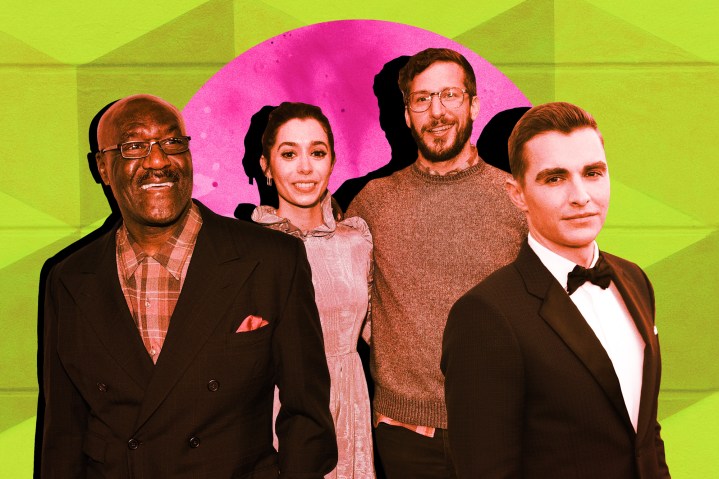
Despite Christopher Nolan’s best efforts, it has now been nearly five months since a major Hollywood theatrical release. But while audiences have felt the pain of No Time To Die, Mulan, and Black Widow’s absence, they have filled the void with an eclectic array of movies and TV shows — some of which have been made by filmmakers who are only now receiving long-overdue recognition.
Instead of being dominated by big-budget blockbusters at the theater, 2020’s biggest successes have largely been from smaller-budget affairs and less-known actors and directors whose films debut on streaming services and video on demand.
Smaller successes
The scant slate of releases has propelled the Western drama First Cow and its always magnificent writer and director Kelly Reichardt into the conversation. The Half of It, Alice Wu’s delightful return to directing after 15 years, has steadily grown in popularity. Dave Franco has been exalted for his directorial debut The Rental, while Josh Trank used early May to openly discuss his disastrous Fantastic Four reboot and then reposition himself as a risky and provocative director with the divisive Capone.
Actors have benefited, too. Delroy Lindo is now an awards season front-runner thanks to his incredible turn in Spike Lee’s Da 5 Bloods. Stand-up comedian Bill Burr was celebrated for his stirring portrayal in The King of Staten Island. Audiences fell in love with Andy Samberg and Cristin Milioti in the time-bending rom-com Palm Springs, and Extraction and The Old Guard reaffirmed Chris Hemsworth and Charlize Theron’s status as two of the biggest action stars on the planet.

For Paul Dergarabedian, a senior analyst over at Comscore, it makes perfect sense that large audiences have immediately pivoted to the above home releases, as “people are literally spending 24/7 looking for content.”
“In 2019, we had record-breaking box office figures around the world in theaters. At the same time, Netflix, Amazon, Hulu, even Disney+ and Apple+, were all making stuff. So all of that interesting content, both inside the home and outside the home, has now got really condensed into the in-home experience.”
Sorcha Ní Fhlainn, a senior film lecturer at Manchester Metropolitan University, says the lack of tentpole releases has “temporarily benefitted smaller releases and boosted” new talent because streaming services “enable them to find their audience.”
“People are going outside of their comfort zones to find new content,” adds Dergarabedian, who says Netflix’s ability to open up a “bigger audience for new filmmakers” should even lead to these individuals “being sought after for big-screen content.” That’s already started to happen, as Coffee & Karem’s Michael Dowse, Uncorked’s Prentice Penny, and Inheritance’s Vaughn Stein quickly set up their next directing projects during lockdown.
The challenges of releasing a movie during the pandemic
It shouldn’t be forgotten, though, that the disintegration of the theatrical model has devastated most aspects of the movie industry, especially when it comes to smaller, independent movies.
“Films really need some kind of major boost out of the gate, whether from a film festival or a theatrical release,” says Sasha Stone at Awards Daily, who says that it has been “nearly impossible” for any film to register with audiences because “so many people are focused on the pandemic.”
Box Office Pro’s editorial director, Daniel Loria, believes that only Universal’s Trolls: World Tour, ESPN’s The Last Dance, Netflix’s Tiger King, and Disney+’s Hamilton have captured any “part of a national conversation” since the pandemic began. He even suggests that the likes of Da 5 Bloods, Palm Springs, and The King of Staten Island “might have fared better with an additional platform like theatrical to complement them,” as fewer platforms mean less potential for films to break out.
That feels especially true for the critically acclaimed but mostly unseen Never Rarely Sometimes Always. After winning the Special Jury Award at the Sundance Film Festival, it was released with a 99% Rotten Tomatoes score on March 13, just as the pandemic was closing American cinemas — and it only made $16,565 at the box office.
Netflix comes out on top
The big winner throughout all of this, though, is undoubtedly Netflix. “Their money is in subscriptions,” says Stone, “which have been on the rise during the lockdown.” This stranglehold is probably only going to get tighter over the next few months.
The continued closure of cinemas — and audiences’ likely reluctance to immediately return to them even once they do open — means Charlie Kaufman, Aaron Sorkin, and David Fincher’s new movies will arrive on the streaming service uncontested.
Not only does Ní Fhlainn see this “unique set of circumstances” as the catalyst to a huge “shift in Hollywood history,” but Dergarabedian predicts that conversations over “theatrical windows, the power of streaming to give filmmakers a voice, exposure, and a platform,” and the legitimacy of Netflix as a Hollywood power will all be accelerated, too.
“This is going to have an impact,” he adds. “But any big pronouncements on big shifts in entertainment should be tempered with an understanding that anything is possible.”



